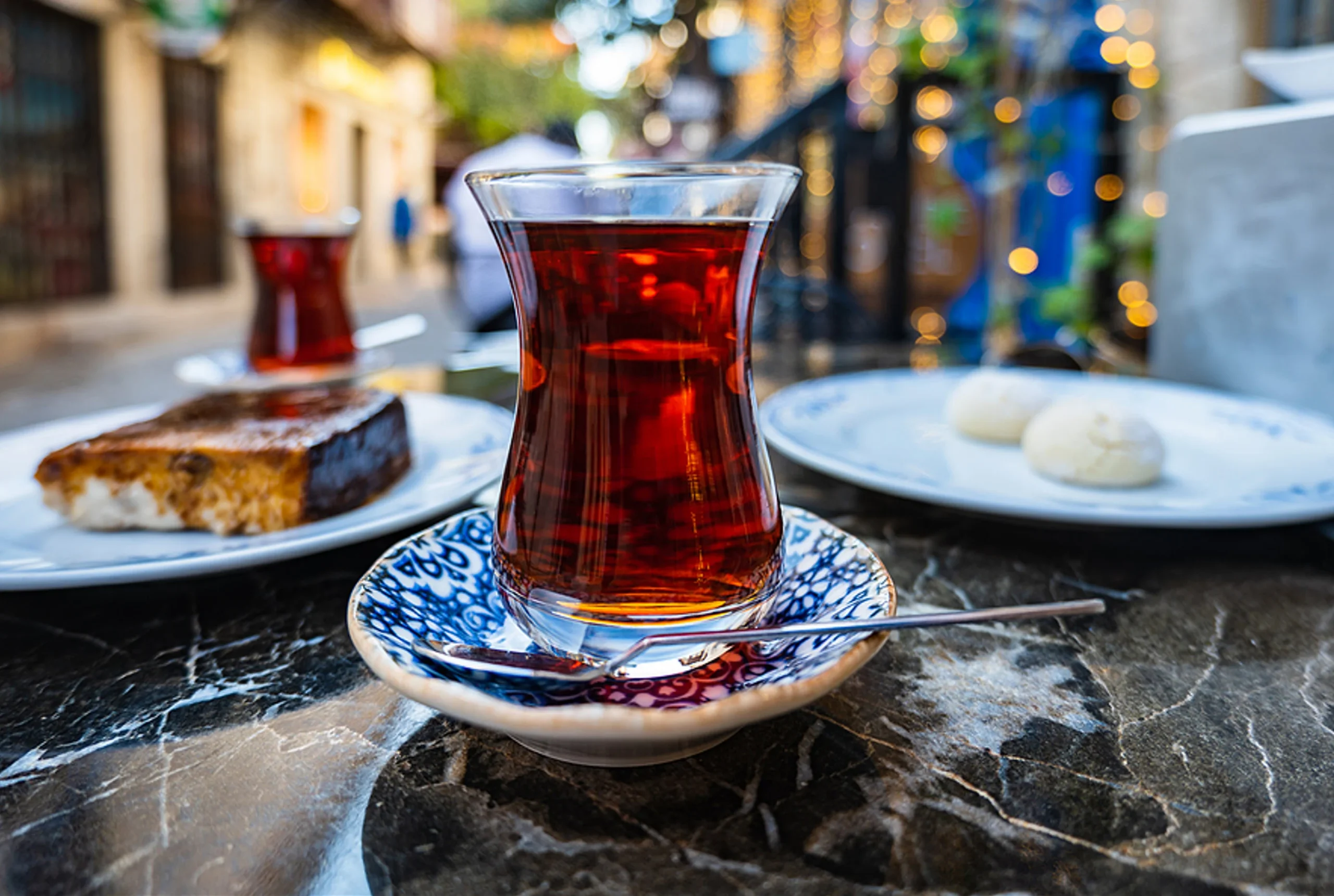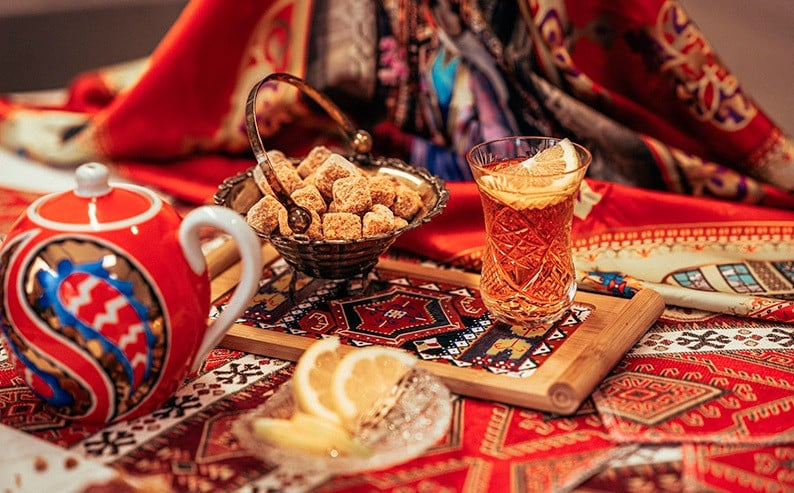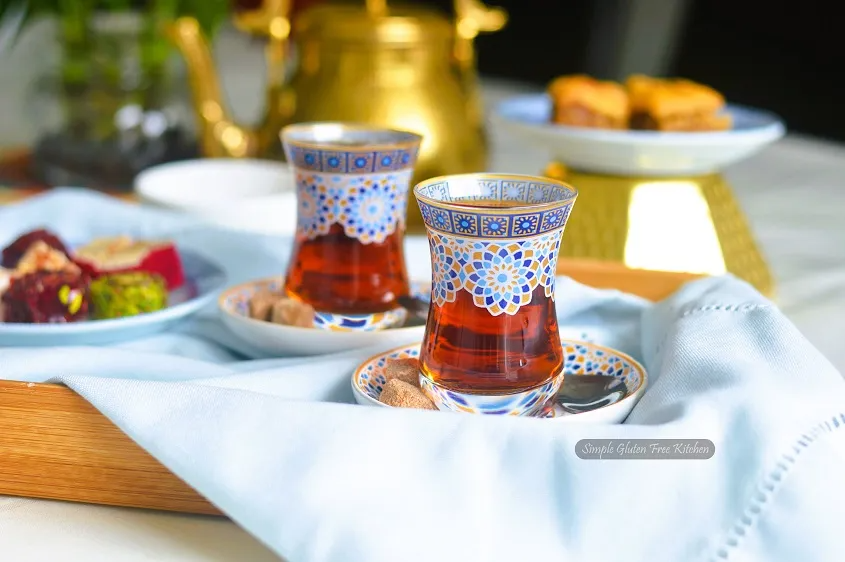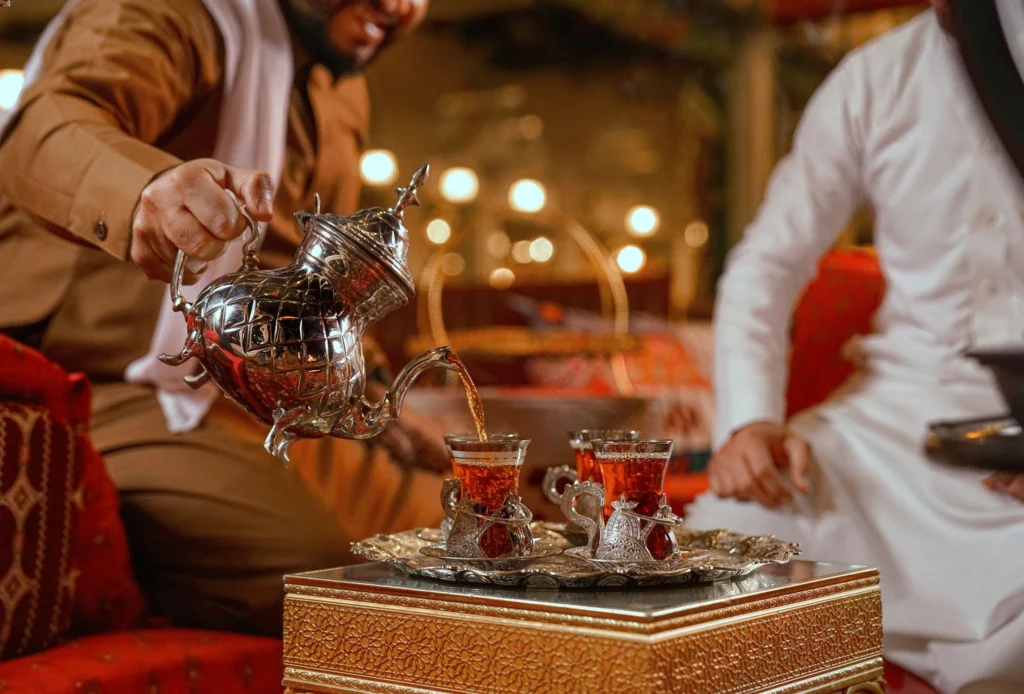Known in Turkey as “çay,” Turkish tea is far more than just a drink. It’s a sign of hospitality, a cultural legacy passed down through the years; daily living depends on it. This article examines the rich culture of traditional Turkish tea, its background, preparation techniques, and its significant role in Turkish society.
History of Traditional Turkish Tea
Though tea drinking in Turkey became common in the early 20th century, traditional Turkish tea has origins in the late 19th century. Before tea gained popularity, coffee was Turkey’s primary beverage. But when coffee costs rose and the Ottoman Empire’s latter years’ challenges with coffee imports appeared, tea became a more reasonably priced substitute. The government encouraged tea farming in the Rize area on the northeastern coast of the Black Sea, which offered the perfect temperature for tea estates.
In Turkey, tea was now the most often consumed beverage by the middle of the 20th century. Modern traditional Turkish tea is not only a beverage but also a significant component of daily rituals and social life. Popular venues for social events, it is presented at homes, businesses, and tea establishments called “çay bahçesi” or “çay ocağı.”

Preparation of Traditional Turkish Tea
Traditional Turkish tea is made in a two-level teapot known as a “çaydanlık.” The çaydanlık comprises a tiny teapot atop a bigger one. The smaller pot holds the tea leaves, while the larger pot contains boiling water. This unusual brewing technique allows for a powerful and milder drink that suits different tastes.
To make classic Turkish tea, arrange loose tea leaves in the upper teapot and heat water in the lower pot. Once boiling, pour some of the water into the upper pot to soak the tea leaves. As the lower pot continues to heat, the tea remains warm. To reach the intended strength for serving, place a tiny bit of the strong tea from the top pot into a glass and dilute it with water from the lower pot. This approach guarantees that everyone can savor their tea just how they want it.
Traditional Turkish Tea Role in Hospitality
In Turkey, it is customary to provide visitors with traditional Turkish tea. People view it as a gesture of hospitality and friendliness. A glass of tea is typically the first thing a visitor to a Turkish house receives. Offering tea to guests and clients is usual at businesses, stores, and even government buildings outside the house. Sharing tea fosters warmth and openness that help to ease communication and strengthen relationships.
Usually presented in little, tulip-shaped cups, traditional Turkish tea is known as “ince belli,” or “slim-waisted.” The purpose of these cups is to maintain the tea’s heat while ensuring portability. Additionally, the transparent glass allows one to enjoy the rich crimson hue of the tea. The glass’s dimensions inspire regular refills, reflecting generosity and a desire to extend social connections.

Traditinal Turkish Tea Houses and Social Life
Turkish social life is heavily reliant on tea cafes, often referred to as “çay bahçesi.” People come to these venues to unwind, socialize, play backgammon, and have a cup of classic Turkish tea. Often placed in picturesque settings, including parks, next to the sea, or under the cover of trees, tea shops offer a serene setting where guests may relax.
Apart from tea houses, there are also “çay ocağı,” smaller, more casual tea stores usually located on crowded marketplaces or street corners. These locations provide those seeking a brief respite or an opportunity to catch up with friends and coworkers. The popularity of these tea rooms and tea stores highlights Turkey’s social fabric and the daily relevance of traditional Turkish tea.
Typical Turkish Tea at Festivals and Ceremonies
Furthermore, traditional Turkish tea plays an important role in many Turkish rituals and celebrations. During weddings, festivals, and other events, people sometimes present tea alongside sweets like baklava and Turkish delight. It’s also a popular beverage during religious events and family get-togethers because it promotes a friendly and welcoming environment.
Though less formal than in some societies, tea rituals are nevertheless important in Turkey. Serving tea is, for instance, a major component of a “kız isteme” ritual, in which a groom’s family requests a hand in marriage. The bride-to-be usually demonstrates her hospitality by bringing tea to the guests.

Health Benefits and Cultural Beliefs
When it comes to traditional Turkish tea, there are certain cultural beliefs and customs attached. In Turkey, there is a belief that tea can heal various illnesses. People often consume tea to alleviate stress and fatigue, as it is believed to have calming properties. Others also think that tea could cure colds and aid with digestion.
Traditional Turkish tea is associated with several rituals in addition to its health benefits. When someone turns down a tea offer, for instance, it might indicate that they are in a hurry or not eager to start a discussion. Likewise, providing tea regularly shows the guest care and attention to their comfort.
Modern Trends and Changes
Turkish society still values classic Turkish tea, but modern tastes are altering the way people drink it. Some younger generations are discovering different tastes and preferences as coffee culture and international beverage companies grow. Still, many people find significant emotional resonance in classic Turkish tea.
With an eye on premium tea leaves and handcrafted preparation techniques, traditional Turkish tea has become increasingly popular again in recent years. Offering a broad selection of tea kinds and tastes, tea stores, and cafés focused on traditional Turkish tea are growing in popularity. This fresh curiosity shows a want to honor and protect the cultural value of traditional Turkish tea.
Conclusion
More than just a drink, traditional Turkish tea is a cultural event bringing people together. Turkish culture profoundly ingrains traditional Turkish tea, from its rich history and unusual preparation techniques to its role in hospitality and social life. It represents friendliness, kindness, and the value of personal relationships. Despite modern developments and changing tastes, traditional Turkish tea is still a beloved daily ritual in Turkey. It reminds us of the small pleasures of drinking a cup of tea with others.
Understanding and valuing traditional Turkish tea’s customs and values can help us better grasp those aspects of Turkish society. Whether drunk in a busy tea house or a peaceful cottage, traditional Turkish tea is still a classic statement of hospitality and unity.

